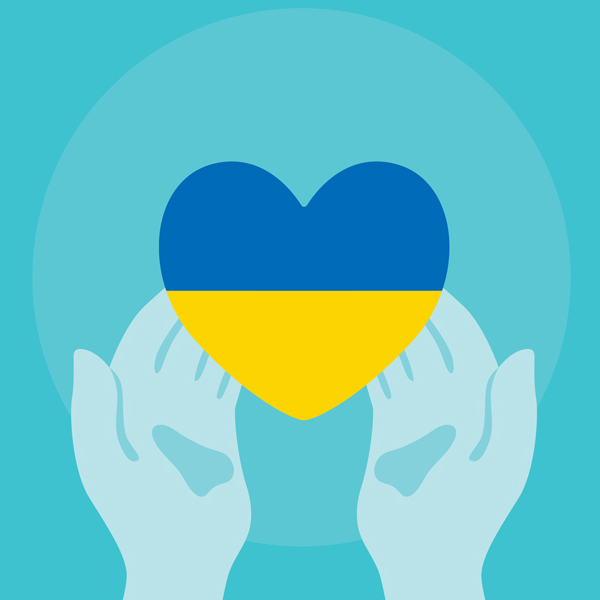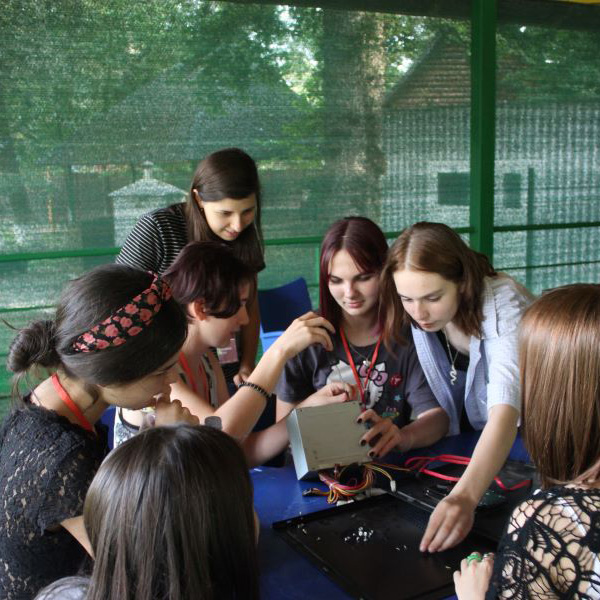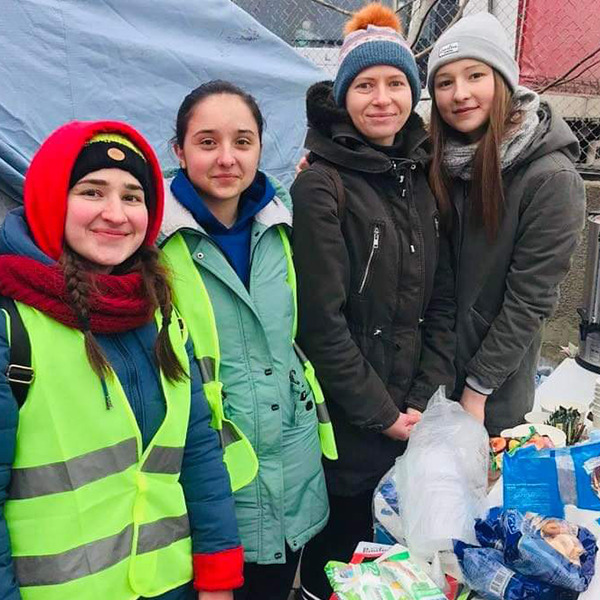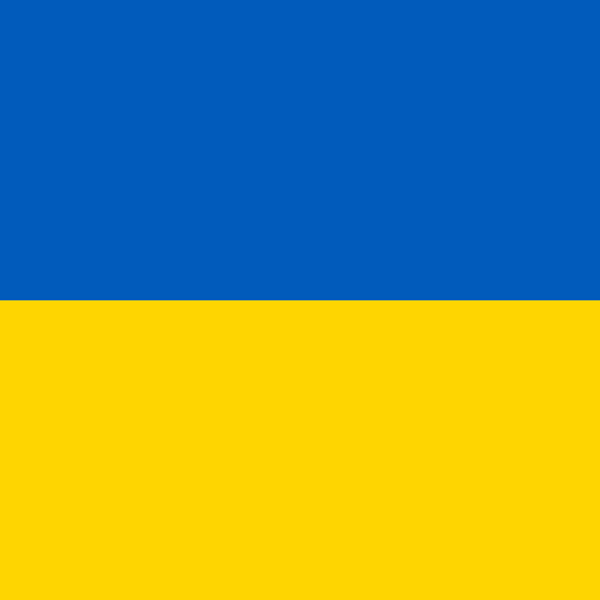More than a year after the Russian invasion of Ukraine, GFC partners in Moldova continue to step up, providing activities and welcoming spaces for Ukrainian refugee children and their families.
It’s been more than a year since Russia invaded Ukraine. Millions of Ukrainian families have fled their homes to escape the conflict. For many, the Republic of Moldova was the closest and easiest safe country to reach, but Moldova – the poorest and second-most-rural country in Europe – was not ready for a massive number of Ukrainian refugees.
Yet Moldovan communities and civil society stepped up, opening schools, homes, and community centers to Ukrainians. They fed and clothed Ukrainian families and provided what little resources they had. A year later, resources and communities are stretched even thinner. But Moldovans are still trying to help.
In the past year, GFC has supported five Moldovan NGOs that are working with Ukrainian refugee families, and GFC staff were able to visit Moldova in mid-March. We started our visit with longtime local partner Institute for Rural Initiatives (IRI), which, with GFC support, created nine regional centers, called MEET centers, for Ukrainian refugees.
We visited the Chisinau MEET center first. IRI explained that this space had previously been used as an illegal dance club and casino. Now it’s been transformed into a safe and inviting space for Ukrainian families. Each day after school, the MEET center welcomes Ukrainian kids for educational activities. During our visit, the kids were making sheep out of clay while their parents met with us and shared their stories. And by “parents” I mean several moms and one grandmother. There were no fathers, as nearly all Ukrainian men aged 18 to 60 are either already in the Ukrainian military or are not permitted to leave Ukraine in case they need to be called up for duty.
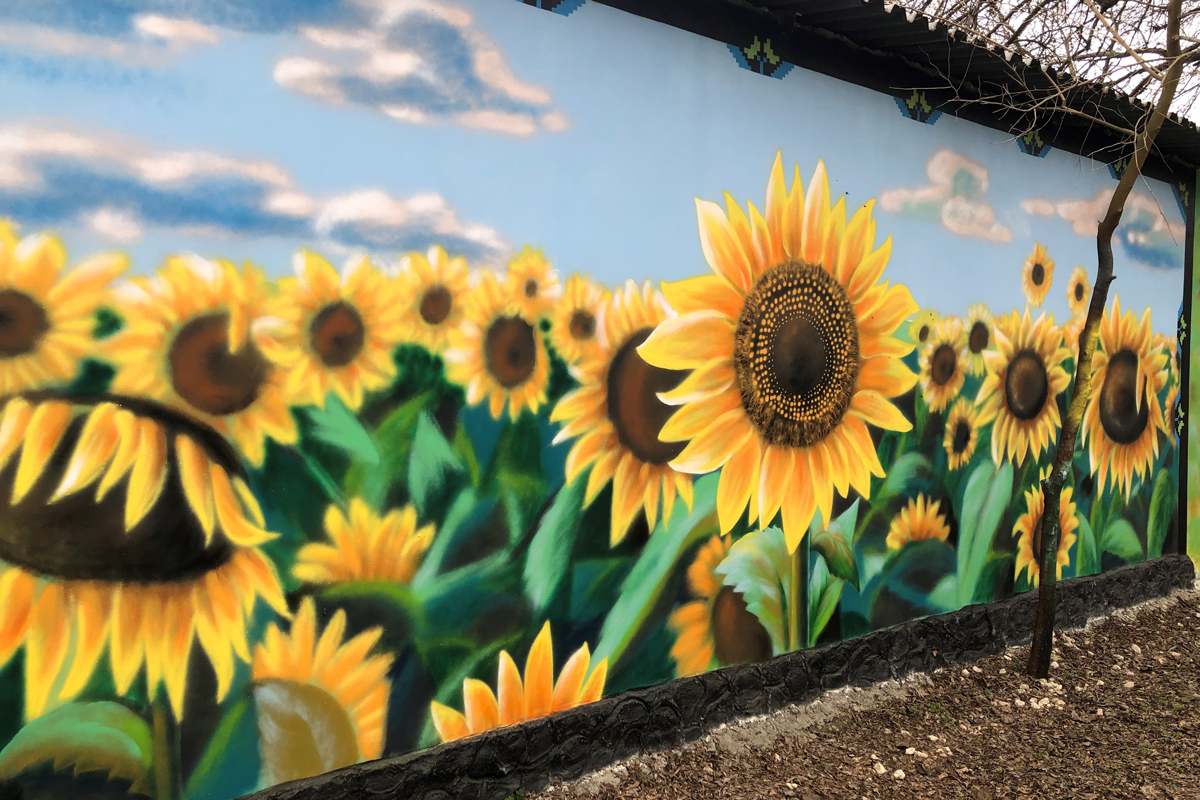
The moms were mostly from southern and eastern Ukrainian cities that have been near the front lines since the beginning of the war.
The Ukrainian families in Moldova overwhelmingly want to go home; IRI estimates that 90% to 95% have indicated that they want to return to Ukraine.
They are grateful to the Moldovans, but they do not see Moldova as a long-term place to live. Most of the Ukrainians held white-collar positions back in Ukraine – as teachers, accountants, lawyers, or other professionals – and those jobs aren’t really an option in Moldova. Plus, without their usual support system of husbands and grandparents and extended families, the moms are usually single parenting and have to look after their kids first.
The next day, we went to Ceadîr-Lunga, a small city in southern Moldova that is only a four- to five-hour drive from the Ukrainian city of Odesa. IRI’s MEET center in Ceadîr-Lunga is administered with the help of NGO Pharos, a GFC Spark Fund partner. NGO Pharos Director Nicolai Dishli explained that in the first few months of the war, dozens of Ukrainian refugees slept on exercise mats in the MEET center, which was converted from a garage and emergency care facility.
At this center, we did meet a Ukrainian dad, who was allowed to leave Ukraine because he and his wife have five young children. All of them were playing at the center that day. But this family’s potential return to their home city of Odesa is now even more complicated. A few months after the family fled Odesa, the dad’s friends frantically called him, asking, “Where are you? You must not be at home, because we saw your apartment building destroyed by the Russians.” This family’s future, like that of millions of others, is still uncertain.
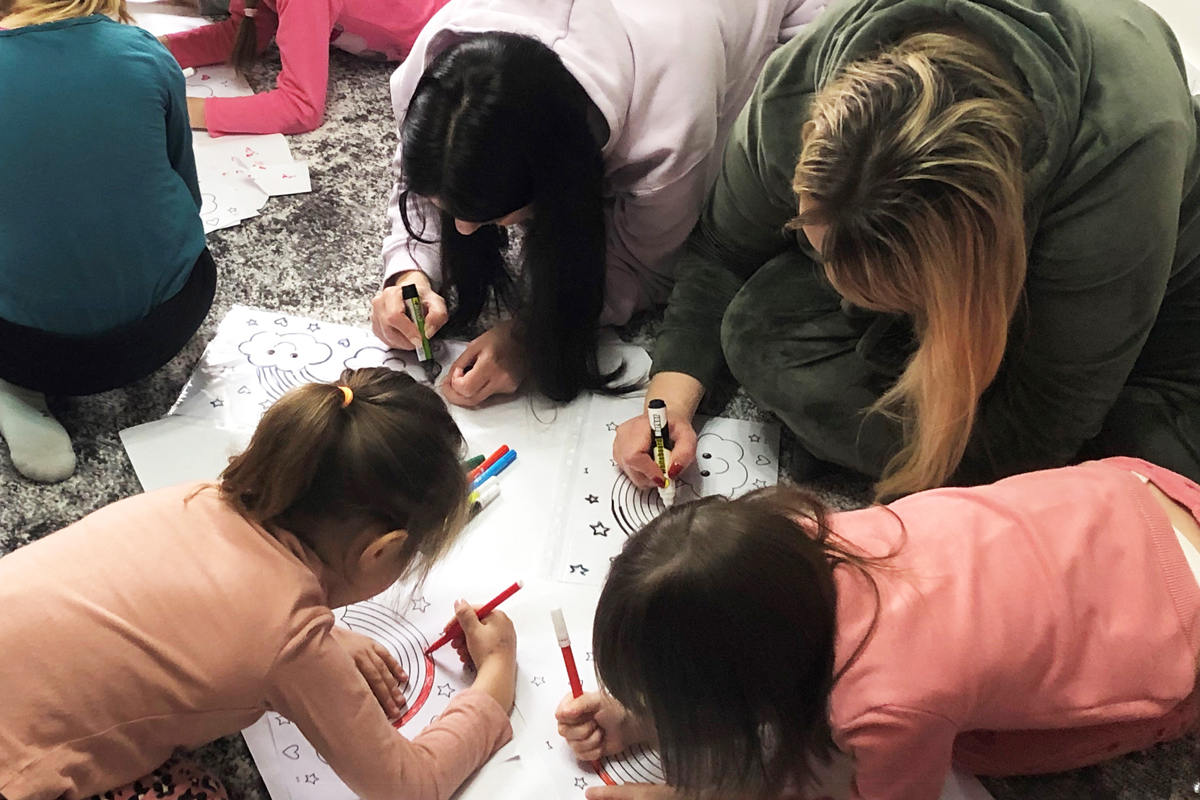
The following day, I went with IRI to visit the MEET center in Edinet, a small city about a 30-minute drive from Moldova’s northern border with Ukraine. Edinet is located on the opposite side of Moldova from Ceadîr-Lunga and mostly hosts Ukrainian families from Kyiv and Kharkiv. On this day, about 15 kids and parents were crowded into the common room of the MEET center, which is administered by local NGO Wings of Life. As MEET center administrator Alina Postolachi explained, there is rarely enough room for everyone who wants to come to the center. GFC’s support helped IRI to renovate this building to make it safe and welcoming, but a bigger place was too difficult and expensive to find. Even in the tight space, the kids and moms (again, just moms) were having a great time.
Most of the Ukrainian refugee kids we met in Moldova were enrolled in Moldovan schools. Because Moldova has schools in many languages, including Romanian, Ukrainian, and Russian, Ukrainian students are often able to take classes in a language that they already speak. Even though Moldovan schools do not have the same level of facilities and equipment as schools in nearby European Union countries like Poland and Romania, having the option of enrolling in a school where you are comfortable speaking the language is a relief and one less thing to worry about for Ukrainian kids who have been through many traumatic experiences in the past year.
Since the war in Ukraine began, GFC has approved more than $2.9 million in emergency grants to 74 local partners in Ukraine and neighboring countries that are helping children and families under attack and refugees fleeing the country. Through GFC’s Ukraine Emergency Response Fund, IRI has received grants funded by UBS and other generous donors.
Header photo: Ukrainian children and their mothers at the MEET center in Edinet, Moldova. © GFC
